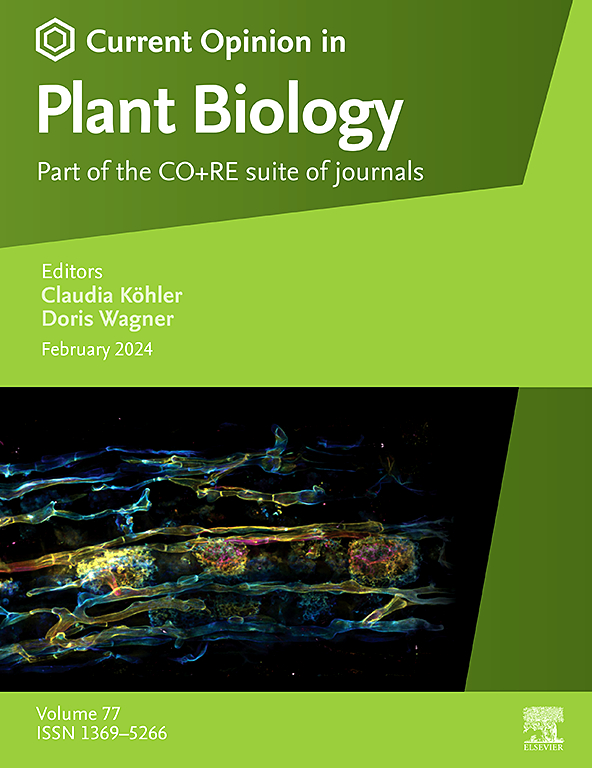Engineering nitrogen and carbon fixation for next-generation plants
IF 7.5
2区 生物学
Q1 PLANT SCIENCES
引用次数: 0
Abstract
Improving plant nitrogen (N) and carbon (C) acquisition and assimilation is a major challenge for global agriculture, food security, and ecological sustainability. Emerging synthetic biology techniques, including directed evolution, artificial intelligence (AI)-guided enzyme design, and metabolic engineering, have opened new avenues for optimizing nitrogenase to fix atmospheric N2 in plants, engineering Rhizobia or other nitrogen-fixing bacteria for symbiotic associations with both legume and nonlegume crops, and enhancing carbon fixation to improve photosynthetic efficiency and source-to-sink assimilate fluxes. Here, we discuss the potential for engineering nitrogen fixation and carbon fixation mechanisms in plants, from rational and AI-driven optimization of nitrogen and carbon fixation cycles. Furthermore, we discuss strategies for modifying source-to-sink relationships to promote robust growth in extreme conditions, such as arid deserts, saline-alkaline soils, or even extraterrestrial environments like Mars. The combined engineering of N and C pathways promises a new generation of crops with enhanced productivity, resource-use efficiency, and resilience. Finally, we explore future perspectives, focusing on the integration of enzyme engineering via directed evolution and computational design to accelerate metabolic innovation in plants.
下一代植物的氮和碳固定工程
改善植物氮和碳的获取和同化是全球农业、粮食安全和生态可持续性面临的重大挑战。新兴的合成生物学技术,包括定向进化、人工智能(AI)指导的酶设计和代谢工程,为优化氮酶在植物中固定大气中的N2、设计根瘤菌或其他固氮细菌与豆科和非豆科作物的共生关系、增强碳固定以提高光合效率和源到库的同化通量开辟了新的途径。在这里,我们从合理的和人工智能驱动的氮和碳固定循环优化的角度讨论了植物工程固氮和碳固定机制的潜力。此外,我们讨论了修改源-汇关系的策略,以促进极端条件下的强劲增长,如干旱沙漠、盐碱土壤,甚至像火星这样的地外环境。氮和碳途径的联合工程有望培育出具有更高生产力、资源利用效率和抗逆性的新一代作物。最后,我们探讨了未来的前景,重点是通过定向进化和计算设计来整合酶工程,以加速植物的代谢创新。
本文章由计算机程序翻译,如有差异,请以英文原文为准。
求助全文
约1分钟内获得全文
求助全文
来源期刊

Current opinion in plant biology
生物-植物科学
CiteScore
16.30
自引率
3.20%
发文量
131
审稿时长
6-12 weeks
期刊介绍:
Current Opinion in Plant Biology builds on Elsevier's reputation for excellence in scientific publishing and long-standing commitment to communicating high quality reproducible research. It is part of the Current Opinion and Research (CO+RE) suite of journals. All CO+RE journals leverage the Current Opinion legacy - of editorial excellence, high-impact, and global reach - to ensure they are a widely read resource that is integral to scientists' workflow.
 求助内容:
求助内容: 应助结果提醒方式:
应助结果提醒方式:


